COMMENTS FROM KYLE
I am a proud Vocational Rehabilitation Counselor. 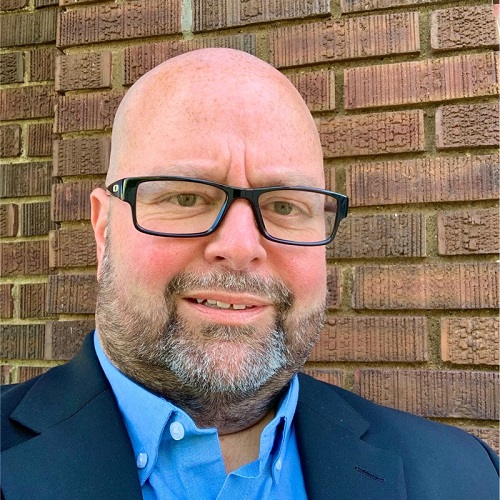
It seems trendy to drop vocational from Rehabilitation Counseling. But, I embrace that part of my professional identity unapologetically. Vocational is not a dirty word. Vocational is the heart of what I do and is central to the human experience. Vocational comes from the Latin word ‘vocatio’ meaning calling or being called to our life purpose. ‘Vocis’ translates to calling, or gaining our voice through finding our purpose. The root word of rehabilitation also comes from the Latin ‘habilitatus’ the past participle of “habilitare” which means to enable or make one capable of fulfilling a purpose.
Together Vocational Rehabilitation is the power to help someone find their calling in life by enabling them to overcome disability related barriers to careers and independence.
I believe my profession faces an existential crisis. As a profession, we are splintered and divided desperately seeking the approval and respect of a general counseling profession that has a unified voice, clear identity, and exerts political power advocating for state licensure, higher education accreditation, and other public policy that is increasingly encroaching on our scope of practice and marginalizing our distinctive specialty. I argue that we must embrace our unique and distinctive value to those we serve to enhance our brand and reclaim our domain. I argue that continuing to allow Vocational Rehabilitation Counseling to be watered-down, generalized, and diffused into a general counseling profession does not serve our clients well and surrenders decades of evidence-based efficacy that is the core of our professional identity. I argue that Vocational Rehabilitation Counseling professionals must unify under a common core professional identity with a unified voice that clearly articulates the value of our distinctive brand and the evidence of the effectiveness of our practices.
VR Counseling is a distinctive and unique craft and world view not shared by any other profession. Our foundational philosophies, roles, and functions have always been a whole made up of three balanced parts.
Vocational: Human beings thrive when they have a clear sense of purpose that unleashes their passion, aligns with their values, talents, and individual strengths. Work that is personally meaningful allows us to thrive mentally, intellectually, emotionally, and socially gaining a sense of belonging and competence. The vocational focus helps people discover strengths, adapt to challenges, and find their purpose in the world. Work helps us find our voice. I embrace the word vocational because finding our calling in life is an effective therapeutic intervention that has the power to transform lives in and of itself.
Rehabilitation: Human beings thrive when they have a sense of control over their own lives and the world around them. This sense of control, independence, self-reliance, and self-direction is highly correlated with a sense of self-confidence, mental health, and resilience. People with disabilities face a world that creates barriers to a sense of personal control. Disability is a socially constructed concept. It is the world around us that disables us, and the only way we can regain our ability to control our lives is to become enabled. The rehabilitation focus of my profession enables by helping people adjust, adapt, and overcome barriers to their right to life, liberty, and the pursuit of happiness. Rehabilitation focuses on individual genius and strengths when most of the world focuses on limitations and restricted opportunity. I embrace rehabilitation because enabling an individual to reclaim a sense of personal control and resilience is a therapeutic intervention in and of itself.
Counseling: My craft has taught me that human beings best overcome barriers and learn to thrive in therapeutic relationships built on mutual trust, respect, kindness, caring, and focused on learning, change, and growth. My training as a counselor gives me the clinical skills I need to build an effective working alliance to discover their concerns, interests, skills, abilities, capabilities, priorities, world view, passions, and values. Counseling provides supportive reflection where the discovery and creation of a vision for the future happens. My counseling skills enable me to truly and deeply listen, to understand the world from the client’s perspective, and to provide a reflection that allows them to explore who they are and who they are becoming. I embrace the word counseling because a trusting and caring relationship is a therapeutic intervention in and of itself.
When you combine the power of all three effective clinical interventions inherent in the very title of Vocational Rehabilitation Counselor, you recognize that no other mental health therapeutic intervention, model, or technique equals the transformational power of what we do.
I am a Vocational Rehabilitation Counselor.
No other counseling or helping profession does what we do.
SVRI TRAINING UPDATES
National Training Center for Transformational Rehabilitation Leadership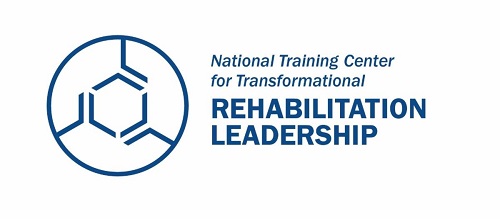
The first leadership training cohort group graduated in July of this year and now holds the Certified Rehabilitation Leader (CRL) credential issued by our partners at the Commission on Rehabilitation Counselor Certification (CRCC). This first cohort group started the training program in January and represents professionals who work in Mississippi, Minnesota, Wisconsin, Wyoming, Arkansas, Oklahoma, Florida, and New Jersey. These initial graduates completed applied capstone projects that will have a meaningful and lasting impact on their organizations. These participants not only shared their satisfaction with the unique and powerful learning and growth opportunity this program gave them, they have also created a lifelong support group with their cohort peers. Karla Opatz, a Vocational Rehabilitation Supervisor who is one of the first graduates stated "I sincerely appreciate the time you took to mentor me throughout the course. Our meetings with you and Russ were a highlight in the course! I learned so much from both of you, and your passion and enthusiasm for vocational rehabilitation is infectious.”
The training curriculum focuses on the Six Domains of Transformational VR Leadership and provides the opportunity to apply concepts and tools to implement transformational change in VR agencies.
The six domains are:
- Purpose-Driven Leadership.
- Conscious Leadership.
- Cultural Leadership.
- Creative Leadership.
- Inspirational Leadership.
- Collaborative Leadership.
Participants also work toward the completion of a final capstone project to demonstrate proficiency in the content that will immediately impact the agency by applying the content to effect change.
Our second cohort of New Jersey, Washington, Idaho, and Texas students have started the program and plan to graduate in December of 2022. West Virginia formed an organization-wide cohort of vocational rehabilitation leaders who will graduate from the program in September of 2022. The January 2023 cohort is open for registration with spots filling up fast. If you are in a senior leadership position, consider signing up for the April 2023 cohort that will focus on senior leadership attributes. Learn more about getting started
Ethics Extravaganza
This summer SVRI is offering a bundle of five Ethics webinars with a focus on diversity and inclusion. These webinars promote a culture of creative solution-making and bring different perspectives to the table by becoming aware of unconscious bias that can assist in respectful decision-making practices. The webinars focus on the ethical practice of rehabilitation counseling and can also be applied to any professionals to aid in decision-making and to distinguish right from wrong.
Cost: $175.00
Register Here: https://bit.ly/3yFLe7S
Innovation Inspiration Expo
The annual Innovation Inspiration Expo 2023 will open for registration in early September 2022. This year’s Expo had over 250 participants attend the live and on-demand sessions that generated collaboration and active discussions between registrants throughout each day.
A couple of our keynote speakers for January 2023 are:
- Deputy Directory, Mark Erlich from the California Department of Rehabilitation will speak about how the Department of Rehabilitation fully implemented statewide utilization of an expedited enrollment process for determining eligibility for vocational rehabilitation services.
- Chris Woodfill and Ryan Odland from the Helen Keller National Center will talk about how the National Training Center for Rehabilitation Leadership and obtaining the Certified Rehabilitation Leader (CRL) credential have aided in their leadership journey and improved organization projects and initiatives.
SVRI SERVICES UPDATES
Eligibility and Order of Selection Unit (EOS)
EOS is partnering with the New Hampshire Bureau of Vocational Rehabilitation to provide our centralized Eligibility & Order of Selection Assessment Services to consumers applying for vocational rehabilitation services.
This service enhances the rehabilitation counselor-consumer relationship through rapid engagement, expedited eligibility, enhanced efficiencies, and returns more time to the Rehabilitation Counselor to perform the most essential functions of their jobs, providing comprehensive counseling and guidance that leads to successful employment.
SVRI would like to thank Wisconsin DVR for their innovative collaborative efforts that lead to the creation of this service in 2014. Since that time, SVRI has facilitated rapid engagement with 9,000 Wisconsin DVR consumers per program year by taking on the busy work of conducting intakes, gathering records, and submitting an eligibility recommendation to the referring Rehabilitation Counselor.
Click here if you would like to learn more about the Eligibility and Order of Selection Unit.
Assistive Technology
Brianne Moon, our Assistive Technologist has been busy providing services and support to area consumers. She has been working with consumers evaluating and customizing their needs as well as identifying funding options. Brianne can provide virtual or on-site assessments for office and industrial ergonomics, computer access, sensory (hearing & vision) technology, job site accommodations, and home modifications.
Contact Brianne at moonb@uwstout.edu or (715) 232- 2248 with any questions! Learn more about SVRI’s AT services!
Project SEARCH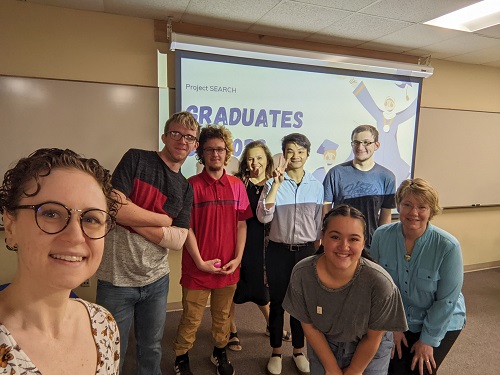
This initiative focuses on preparing young people with significant disabilities for success in competitive integrated employment. Project SEARCH Menomonie is housed at SVRI in the Vocational Rehabilitation Building. This nine-month internship for young adults with disabilities includes hands-on instruction, classroom time that focuses on employability skills, and three rotations at a local business to gain experience and skills for competitive employment.
Connect with Project SEARCH via Facebook
SVRI RESEARCH UPDATES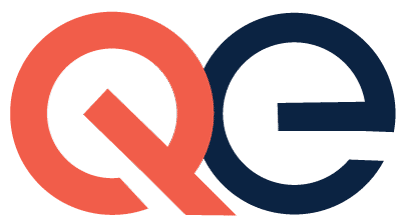
SVRI is a partner with the Vocational Rehabilitation Technical Assistance Center for Quality Employment (VRTAC-QE). The VRTAC-QE goal is to increase the knowledge and skills of state vocational rehabilitation agencies and community partners that help people with disabilities achieve quality employment and career advancement that focuses on competitive integrated employment.
Become a member and gain access to valuable resource materials that focus on employment outcomes and opportunities for people with disabilities. This includes training, factsheets, resource guides, technical assistance, research summaries, and a weekly newsletter to stay up-to-date within the industry. Connect with VRTAC-QE
SVRI STAFFING UPDATES
Beth Gaertner
Beth has accepted a reassignment into the EOS unit to assist with the expansion of services for New Hampshire Vocational Rehabilitation and other areas. Beth will assist in managing the addition of New Hampshire Vocational Rehabilitation with onboarding and training.
Terry Donovan
Terry has accepted a position outside of UW-Stout. His last day at SVRI is August 5, 2022. SVRI wants to thank Terry for his many contributions to the success of the SVRI Training unit and partnership with VRTAC-QE. Terry will be greatly missed but hope there will be opportunities to work with him again in his new role.
Welcome to the SVRI Team
Cayte Anderson, Ph.D., LPC, CRC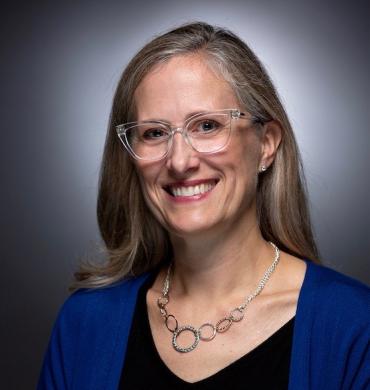
SVRI would like to welcome Cayte back to the SVRI team!
Dr. Anderson serves as the Director of Research with the Stout Vocational Rehabilitation Institute, in a dual appointment partnership with the University of Wisconsin-Madison. Educated as a rehabilitation counselor, Dr. Anderson has worked in the field providing individualized job development and placement, vocational evaluation, and work incentive benefit counseling services to youth and adults with disabilities prior to entering academia. Her research interests focus on better understanding and improving socioeconomic opportunities for individuals with disabilities through use of evidence-based practices, with an emphasis on youth and families, competitive integrated employment, career pathways, and financial empowerment.
Dr. Anderson currently serves as the President of the Commission on Rehabilitation Counselor Certification (CRCC) and actively contributes to numerous professional rehabilitation and counseling organizations. She collaborates with key stakeholders across systems including researchers and evaluators, individuals with disabilities and families, administrators, policymakers, educators, and service providers.
Ellen Zimmerman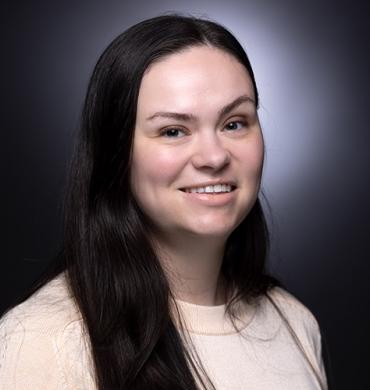
Ellen graduated from the University of Wisconsin-Stout with a Bachelor of Science Degree in Human Development and Family Studies with an individualized concentration in Vocational Rehabilitation. Before joining SVRI, Ellen worked at Aurora Community Services with consumers needing support in and out of their homes and in registration for the Emergency Department at Mayo Clinic Health System. In her free time, she enjoys reading and spending time with her family.
Jia Jiang
Jia has a bachelor’s degree in finance and a master’s degree in instructional technology. She comes from the middle part of China and moved to Menomonie, WI from Pennsylvania four years ago. Jia’s husband works at UW-Stout in the English department, and they have a seven-year-old son.




